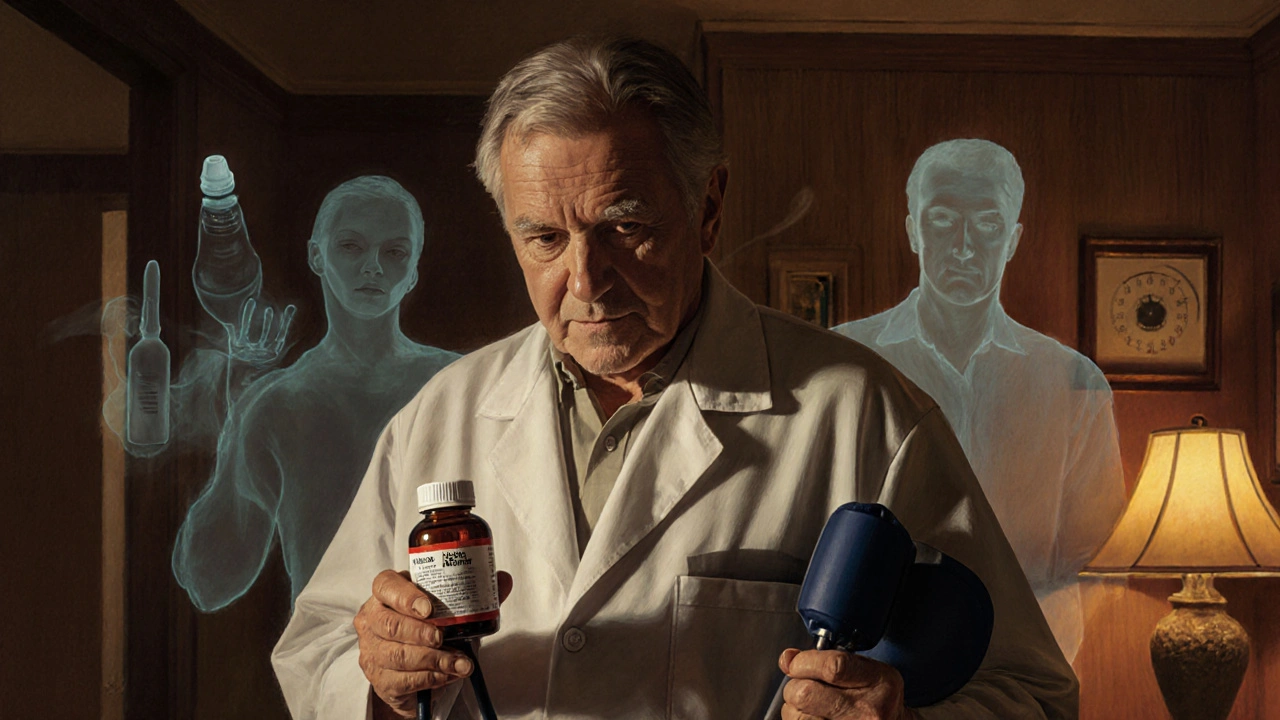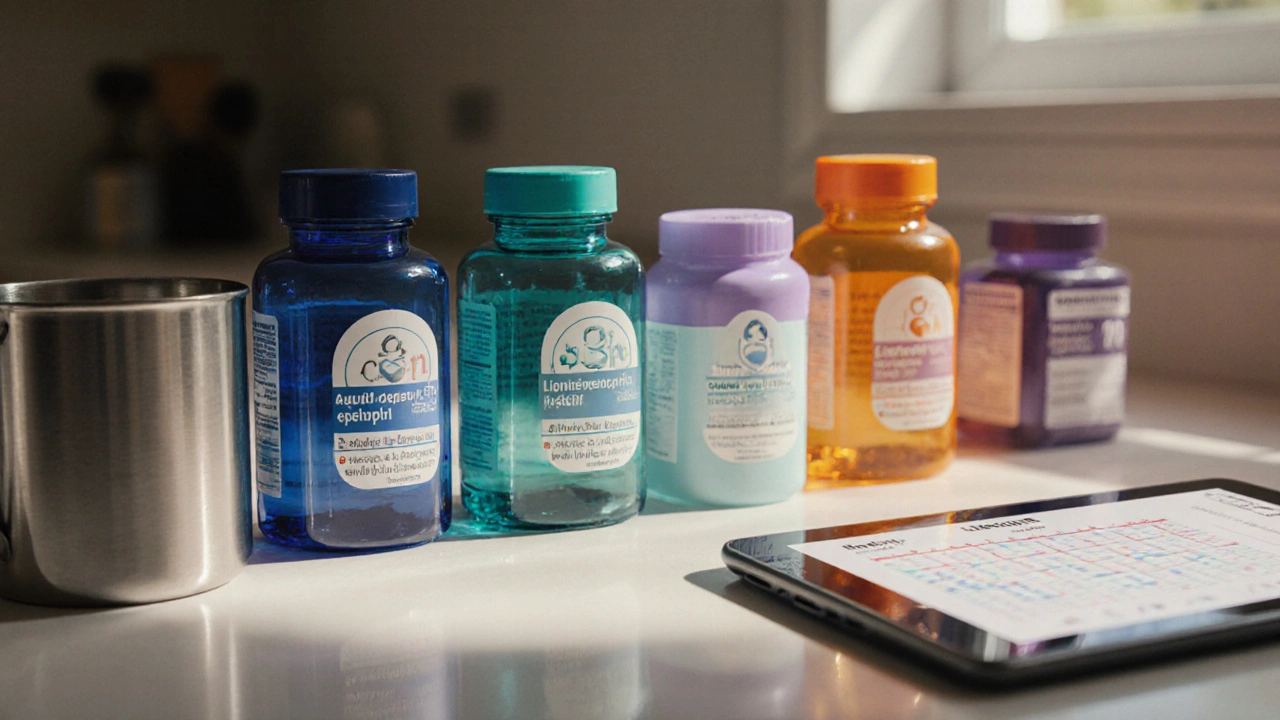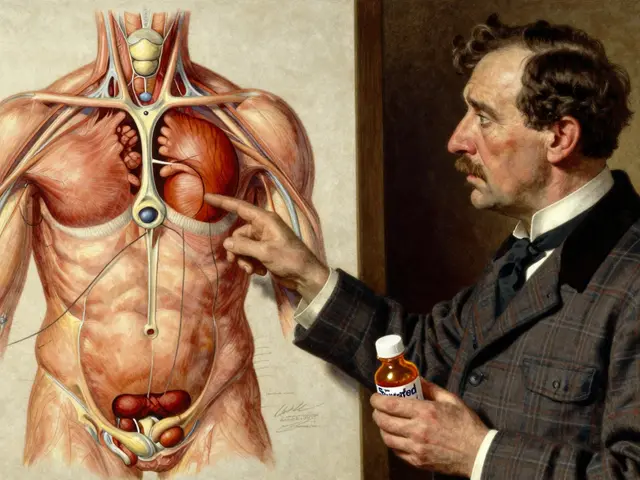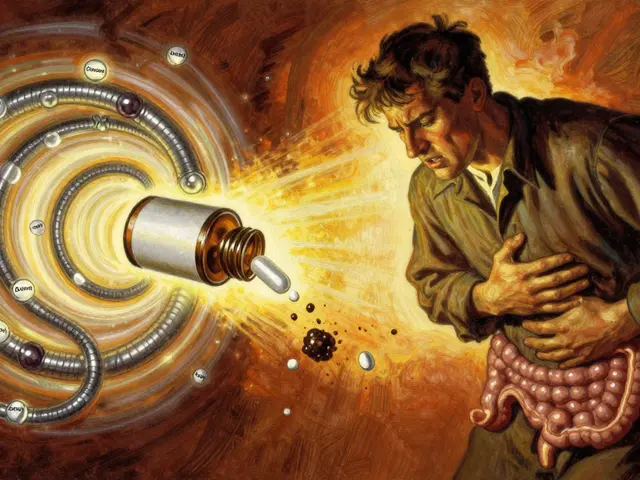Cardiovascular Health: Practical Advice for a Strong Heart
Your heart works nonstop, so giving it the right support matters. Whether you’re trying to lower blood pressure, ease chest pain, or just stay fit, the right information can turn confusion into confidence. Below you’ll find straightforward pointers that cut through the jargon and focus on what you can actually do today.
Know Your Numbers and What They Mean
Blood pressure, cholesterol, and heart rate are the three metrics you’ll hear most often. A systolic reading under 120 mm Hg and diastolic under 80 mm Hg is the sweet spot for most adults. If you’re regularly above this range, talk to a professional about lifestyle tweaks—like cutting back on salty snacks, adding a brisk 30‑minute walk, or swapping sugary drinks for water. Even small changes can shave a few points off a stubborn reading.
When Chest Pain Strikes: The Role of Nitroglycerin
Sudden chest tightness can be scary, but having a nitroglycerin spray ready can make a big difference. Nitroglycerin (also called glyceryl trinitrate) works by widening blood vessels, allowing more blood to flow to the heart. In New Zealand, the typical sublingual spray delivers 0.4 mg per puff; you can repeat it after five minutes if the pain persists, up to three doses total. Always keep the spray upright, store it in a cool dry place, and replace it before the expiration date.
Side effects are usually mild—headache, flushing, or a sudden drop in blood pressure. If you notice dizziness or fainting, sit down right away and call for help. Interactions matter, too: sildenafil (Viagra) and similar meds can cause dangerous drops in pressure when combined with nitroglycerin, so share your full medication list with your doctor.
Beyond emergency relief, managing the root causes of angina is key. Regular exercise, a heart‑healthy diet rich in whole grains, fish, and nuts, and quitting smoking can lower the frequency of attacks. If nitroglycerin becomes a daily need, your doctor may suggest additional therapies like beta‑blockers or calcium‑channel blockers.
Understanding why you need nitroglycerin helps you talk more confidently with your healthcare team. Ask about dosage adjustments, how often you should carry a spare, and what signs mean it’s time to seek urgent care. Knowing the answers empowers you to act fast, not panic.
Aside from nitroglycerin, many other tools aid cardiovascular health. Statins lower LDL cholesterol and have proven benefits for reducing heart attacks. If you’re prescribed one, take it consistently and review any muscle aches with your provider—most side effects are manageable.
Stress management often slips off the radar, yet chronic stress spikes cortisol, which can raise blood pressure. Simple habits—like a five‑minute deep‑breathing break, a short walk, or a quick meditation—can calm the nervous system. Over time, these micro‑moments add up to lower overall risk.
Sleep matters, too. Aim for seven to nine hours of quality rest. Poor sleep can aggravate hypertension and promote inflammation, both of which strain the heart. If you struggle with insomnia, consider limiting screen time before bed and keeping the bedroom cool and dark.
Finally, keep a health diary. Jot down daily blood pressure readings, any chest pain episodes, medication doses, and lifestyle habits. Patterns emerge quickly, and you’ll have concrete data to discuss at appointments.
Staying on top of cardiovascular health isn’t a one‑time event; it’s a series of daily choices. Armed with clear facts about nitroglycerin and a solid plan for diet, exercise, and stress, you can keep your heart ticking smoothly for years to come.

Methadone and QT Prolongation: Essential ECG Monitoring Guidelines
Methadone can prolong the QT interval on an ECG, raising the risk of dangerous heart rhythms. Learn who’s at risk, when to get monitored, and how to stay safe while in recovery.
Jan 2 2026

High Blood Pressure Caused by Certain Medications: How to Monitor and Manage It
Many common medications - from ibuprofen to decongestants - can raise blood pressure silently. Learn which drugs are most likely to cause it, how to monitor your numbers, and what to do if your BP spikes.
Nov 17 2025

Aceon (Perindopril) vs Other ACE Inhibitors & ARBs - Detailed Comparison
Compare Aceon (perindopril) with other ACE inhibitors and ARBs, covering dosing, cost, side effects, and when to choose each option for hypertension.
Oct 4 2025

How Environmental Factors Trigger Ischemia and Affect Your Health
Learn how air pollution, temperature, altitude, smoking, and noise can cause ischemia, and get practical steps to protect your heart and brain.
Sep 29 2025

Nitroglycerin (Glyceryl Trinitrate) Guide: Uses, Dosage, Side Effects, and Safety in NZ
Plain-English guide to nitroglycerin/GTN: what it is, how to use it for chest pain, dosing, side effects, interactions, and NZ-specific tips you can act on today.
Aug 21 2025




